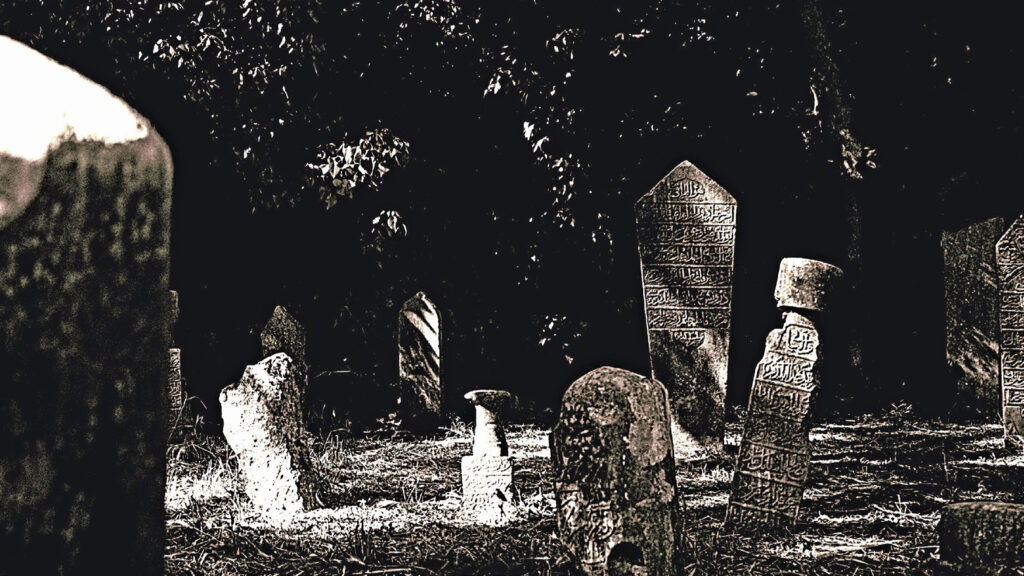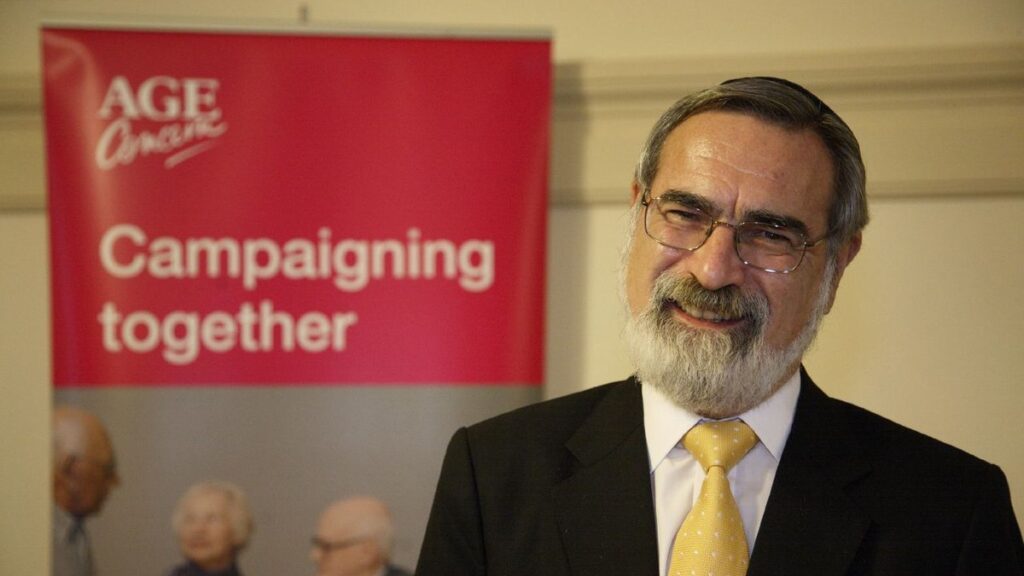Faithful Friends
BY ADELAIDE RUBENSTEIN
Friendship must be about something…Those who have nothing can share nothing; those who are going nowhere can have no fellow travelers.” ― C.S. Lewis, The Four Loves
Judaism in America is a tiny island in an ocean of other faiths, religions, and belief systems. As American Jews, we must ask ourselves the question: Can we form true friendships with people of other faiths? In particular, our great nation has deep roots in the Christian tradition, and we can still see Christianity’s strong influences in our country today. So, how should Jews interact with the religious Christians in our country? I hope to answer this question by sharing my own personal story of growing up as a Jew surrounded by Christians.
For the first sixteen years of my life, I grew up in a small Midwestern town where my siblings and I were the only Jewish children for miles around. With no other Jewish families in the area, our friends were primarily Christian, and because there wasn’t a Jewish school nearby, I spent six years attending a Christian homeschool group. Despite this, my family remained deeply and proudly connected to our Jewish identity. These experiences allowed me to forge meaningful friendships with people of another faith, and instead of undermining my beliefs, these interfaith connections have strengthened my outlook on the world, deepened my relationship with God, and supported me through difficult times.
I have come to appreciate that, as I see it, religious Christians are the Jewish people’s strongest friends and most faithful allies here in America.
What we share with each other
In his articles on Jewish-Christian relations, Rabbi Dr. Meir Soloveichik highlights three key similarities between Jews and Christians that can serve as a basis for enduring friendships. First, as he writes in his article “Why Christians Are Reading the Rav,” both Jews and Christians are drawn to the renowned essay by Rabbi Joseph Soloveitchik, known as the Rav, titled “The Lonely Man of Faith.”
As Rabbi Meir Soloveichik explains, Jews and Christians are united as “lonely men of faith” in an increasingly secular world, bound by our shared belief in God and the Bible. Some of my most meaningful religious experiences have been reading the books of Psalms and Proverbs with my Christian homeschool group. Although we sometimes interpret these texts differently, I find that the shared roots of our traditions reveal many common fundamental ideas and beliefs.
This brings me to Rabbi Soloveichik’s second point: religious Jews and religious Christians share a similar outlook on the world that stands in stark contrast to the modern viewpoint. “Orthodox Jews and Christians share a belief in traditional ethics that is seen today as old fashioned and outmoded,” writes Soloveichik. As our society strays further and further from these traditional values, those who strive to live godly lives must hold on to these truths even more firmly, lest much of what is upright and good will disappear.
The third bond that unites Jews with our Christian neighbors is a shared commitment to the notion of truth. Rabbi Soloviechik states, “For even as Jews and Christians profoundly disagree about the truth, they are united in the belief that there is a truth to be sought.” One may ask: How can we be friends with people with whom we disagree in serious and profound ways? Wouldn’t such a friendship be shallow, given that we clash over some of life’s most consequential questions?
Yet, in my experience, the values that draw us together as people of faith far surpass the differences that pull us apart. As Soloveichick rightly asserts, “A friendship founded on our mutual resistance to relativism is one that can unite us despite our theological differences.” I have cherished the opportunity in my life to grow closer to my fellow “lonely men of faith” as we walk beside each other in our shared quest for truth.
What we can learn from each other
Spending time with Christians has led me to see my own faith in a new light. Yoram Nissonovitch, an Israeli poet, writes, “religious questions may not constitute the subversion of our faith; rather, they may help us get past tired notions that narrow our vision, and it may open our souls to new and deeper understandings.” In my friendships with Christians, my soul has been opened to aspects of their faith that I deeply admire and have been able to incorporate into my own religious practices. For example, Christians place a strong emphasis on praying with any words that come to heart. While I do not believe this should replace our traditional Jewish liturgy, I discovered a profound sense of meaning in personal prayer.
After observing how Christians pray, I have been able to strengthen my own kavana, intention, in my davening.
Another illustration of a way in which we as Jews can learn from Christianity is by incorporating God into all things. My Christian homeschool biology textbook would go through a complicated scientific explanation of cells, followed by a sentence like, “Isn’t it extraordinary how God created all the parts of our cells to work in perfect harmony with each other?” I found it inspiring the way their studies consistently related back to God. Simply spending time around other passionately religious and godly people has nourished my personal relationship with God.
Our Christian friends and neighbors were always equally curious to learn about our Jewish rituals. We hosted Shabbat dinners, Sukkot gatherings, a yearly menorah lighting in our town square, and countless other events. In all these instances, our friends showed genuine interest in, and respect for, our customs.
But I also recognize that the extensive history of Jewish-Christian relations has not always been so harmonious. Jews today are often wary of Christians, and for good reason. One may well ask: How can we form friendships with those whose ancestors treated us with such malice? Moreover, how can we be sure that Christians are not befriending us for the purpose of turning us away from our faith? Indeed, interactions between Jews and Christians throughout the centuries have been fraught with hatred, violence, and forced conversions. Yet, we hope and pray that this era of hostility and tension is over. My experience with my Christian neighbors has certainly reinforced my belief in this. While we will continue to have theological disagreements, the ties of faith that bind us together will prove stronger than our differences, leaving room for beautiful friendships to form.
Another personal story may serve to illustrate this point. A few weeks ago one of my Christian friends approached me and asked very directly, “So, you don’t believe in the trinity?” I thought to myself, “Ok, here we go!” The question sparked a long and thoughtful discussion in which my friends asked me questions about everything from Jewish rituals and customs to the core ideas of Judaism, the way Jews read the Bible, and even my own religious convictions.
What was reassuring was that the conversation remained exactly that—a conversation. It was not an interrogation, a debate, or an argument. No one was trying to convince the other that her beliefs were wrong. Instead, my friends were genuinely curious to understand more about Judaism, a faith that was relatively foreign to them. Such a discussion could not have taken place between Jews and Christians in previous centuries and previous places. We are fortunate that in America today, these types of friendly religious discussions are possible. These deep conversations between friends of different faiths can serve to heal the wounds of past centuries and strengthen the beliefs of the two religions of the Bible.
How we can support each other
Following Hamas’s October 7 attacks on Israel and the ensuing explosion of violence against the Jewish people, Jews in America can feel very alone. Yet, in times such as these, it is critical that we do not isolate ourselves from the world but rather persist in seeking out those who will continue to support us, even in our darkest hours. As it says in the Psalms: “A friend loves at all times, and a brother is born for a time of adversity.” This verse proved true for me and my family in the months following October 7. In those first few weeks of sadness, fear, and uncertainty, it was the Christians in our little town who stood by our side as the world seemed to cave in around us.
It was our Christian neighbors who came to our home every morning to pray with us for the Israel Defense Forces (IDF) and for the release of the hostages. It was our Christian friends who sent us texts of Psalms and verses that had brought them strength in times of trouble. It was the Christian families in our homeschool group who all signed an Israeli flag, which my father took with him to Israel to show the soldiers in the IDF that their Christian brothers stand with them even during this time of adversity.
Many Jews have posed the question: Is Christian support for Israel and the Jewish people grounded in good intentions? Perhaps Christians only care about the Holy Land for selfish reasons—namely, the belief that the return of the Jews to the land will bring about the second coming of the messiah. Yet, if the examples of heartfelt Christian loyalty and friendship from my own life have not disproved this suspicion, I invite anyone who still opposes the sincerity of interfaith friendships with Christians to look up the International Fellowship of Christians and Jews and read their pledge statement.
It is a truly moving declaration that testifies to all of the experiences I have had in my own life. It shows all the things we as Jews and Christians share, the ways in which we can learn from each other’s faiths, and most importantly, it demonstrates that Christians will stand with the Jewish people in our time of need. When I first read this statement, tears filled my eyes. I no longer felt alone because, no matter what challenges we Jews face, we will always have faithful friends by our side.
Suggested Reading

Right Before His Eyes
BY ARI UNGER Jacob wore a tightly buttoned plaid shirt. He had a thin, carefully trimmed mustache, and nicely pressed slacks. He sat on the couch, which was carefully covered…

The Jewish World of Alexander Hamilton
Andrew Porwancher’s The Jewish World of Alexander Hamilton dissects the Founding Father’s unique relationship to the Jewish community.

The Importance of the Arts
BY RAFI UNGER What distinguishes humans from animals is our capacity for creativity and generating new ideas. In essence, the unique creativity of humans separates us from other creatures. Unfortunately,…

The Dignity of Difference
Rabbi Lord Jonathan Sacks' book, "The Dignity of Difference", explores the two extremes of a purely religious and a solely political society as well as the place of Judaism and religion in general in this highly political world.